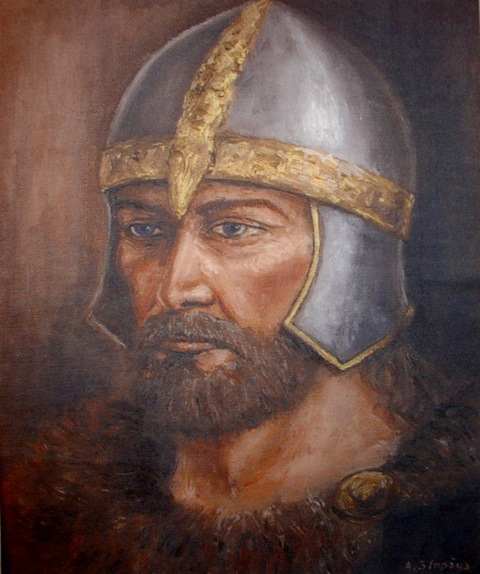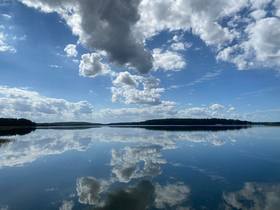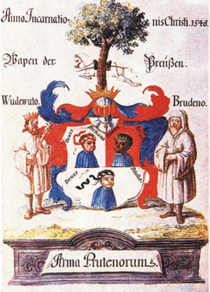
The history of ancient Prusai WHO WERE THE PRUSAI? ARCHEOLOGY COULD PRUSAI BE CHRISTIANS ? Mieszko I Poland THE ARMS AND THE WAY OF FIGHT THE CONQUEST, I, II UPRISING THE III-rd PRUSAI UPRISING The PRUSAI KNIGHTHOOD OPPOSITION What has happened to Prusai? THE GERMANIC ENSLAVEMENTS
The Battle of Grunwald
Culmland Banner The Prusai Maps
PRUSAI
Prusians Heroes Prominent Prusian Where you are, Prusai?
COAT OF ARMS
The Coat of Arms THE COAT OF ARMS PRUS I, II, III Unknown version Prus I,II, III Prus - name and Coat of Arms UNKNOWN COAT OF ARMS EUROPE MONARCHIES
PRUS DESCENDANTS
Pilewski
KURPII
The Kurppii Genesis
THE DISPUTE ABOUT HISTORY
German militarism Tadeusz Mrozinski
CULTURE
About the Prusai language The Prusai language and its sources ART AND PEOPLE Archeology Prusian Babas
PUBLICATIONS
Die Altpreußischen Personennamen Download
Elbling Dictionary
FORUM
FORUM - ARCHIVES
MAIL: PRUS@PRUSOWIE.PL
Counter
Counter

AUCTUME, LINKA - PRUS LEADERS OF POGEZANIA
The name Prusia is probably derived from sanscrit “pursuah” meaning people. Around the year 1075 Adam of Bremen wrote about the
Prusians as “Homines Humanissimi” - the most humanitarian of people.
They lived in a part of Europe which was free of wars, conquest and cataclysms. Their land was sufficient fertile, not only
tilling the soil, but also from animal rearing, hunting and fishing. they carried out trade with the Scandinavians and also
sold amber to Southern Europe. Animal farming was well developed, but a speciality of the Prusians was the rearing of horses,
particularly white ones.
Pogezania bordered with Pomezania. During the Pomezanian uprising it formally took part in it, but with a restricted activity.
The Peace Treaty was not signed by the Pogezans, and with superior Teutonic forces, they withdrew from the rising in 1251.
However, with the start of the second rising in 1260 they initiated their presence with considerable activity.
Auctume was chosen from amongst their elders to be their leader. Under his leadership they gained several quick victories,
conquering some smaller Order castles. The siege of Elbing and seizure of this most fortified castle on Pogezan lands failed.
After these events traces of Auctume disappeared.
The leadership of Pogezans passed to Linka. He turned out to be able and dynamic leader of his people. Together with the Barts
he carried out an expedition to the Chelminski land and inflicted a defeat on the Order in the battle at Pagastin. 12 Teutonic
knights and 500 other Germanic invaders were killed.
After this victory, Linka with his forces made a rapid turn about and attacked the fortress of Dzierzgon, with a numerous and well
armed garrison. They were very near to sacking the stronghold, but the arrival of reinforcement from Elbling forced Linka to
announce a retreat.
The greatest danger remained the very heavily fortified castle of the Order at Elbling, which was built on the spot of the
Prus port of Truso, which was a centre of trade in the Baltic basin.
Linka, using the Orders tactics, once more started a battle of Elbling. Unexpectedly, he led the garrison of Elbling into a trap.
He inflicted very serious losses on them which for a time did not let the Order sent attacking bands to Pogezania.
The Knights waited for a new forces from Germany and the rest of Europe.
In 1274, with doubled forces, wanting revenge, they attacked the Pogezan stronghold of Lidzbark Warminski. The fort was
taken and the Pogezans had to flee. We do not know what happened to their leaders.
Food for thought in the consequence with which the Popes called for a crusade in Prusia.
It is difficult to understand the blind tolerance towards the Teutonic Order, and failure to note the barbarity in Prus land.
These Knights were the military hand of the Papacy. Although they returned from the war with the World of Islam without victory.
However this did not mean that they would not be useful to the Papacy in the future. The problem was that nobody in Europe wanted them.
The naive and not particularly intelligent, but eager for the Polish Crown Conrad of Mazovia imported the Order to safeguard his ambitions.
A few years earlier Conrad, together with the Prusians, organised an expedition to Little Poland.
The convergence of the political plans of the Papacy and of German expansionism was to form in Prusia the seat of the Teutonic Order.
The overwhelmed and subjugated Prusians were to form slave labour to enable the Knights to be ready for the next Christian expeditions.
As to the rest, I leave you with your thoughts.
 www.Prusowie.pl - polski
www.Prusowie.pl - polski